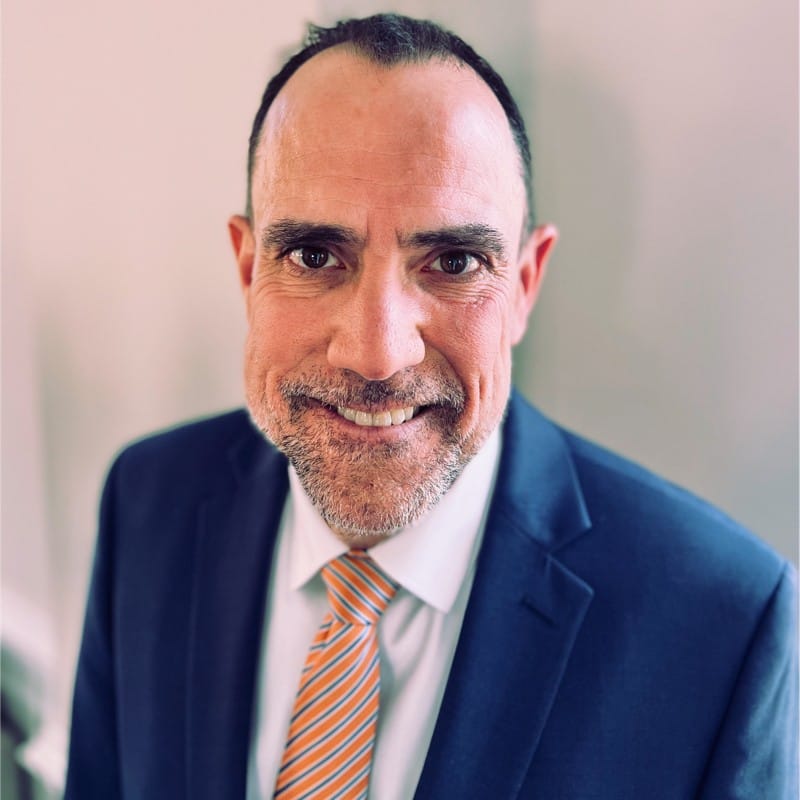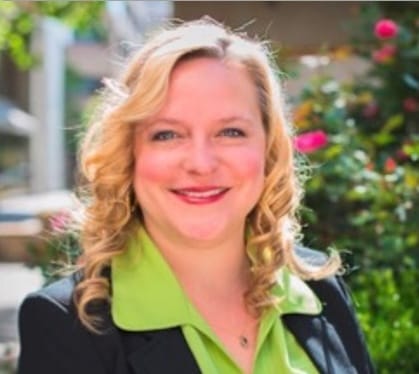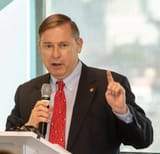Broadband Breakfast on April 24, 2024 – Amnesty for Rural Digital Opportunity Fund Recipients
The Rural Digital Opportunity Fund has found itself mired in funding defaults.

The Rural Digital Opportunity Fund has been grabbing headlines lately, but not for the right reasons. After a series of defaults on funding amounting to up to $3 billion - a third of what has been doled out since the program’s conclusion - the Federal Communications Commission is considering an amnesty window for RDOF winners. Proponents argue that an amnesty is essential to salvage the program's lofty goals and unlock funding sources like the Broadband Equity, Access, and Deployment program. Critics warn that an amnesty would incentivize future providers to make reckless promises they can't live up to. What lessons can we take from the RDOF saga?
Panelists
- Philip Macres, Principal, Klein Law Group, PLLC
- Seth Cooper, Director of Policy Studies, The Free State Foundation
- Louis Riggs, Representative, Missouri
- Quinn Jordan, Executive Director, Mississippi Broadband Association
- Gerry Duffy, Regulatory Counsel for WTA - Advocates for Rural Broadband
- L. Elizabeth Bowles, CEO, Aristotle Unified Communications Inc.
- Drew Clark (moderator), Editor and Publisher, Broadband Breakfast






Philip Macres, a principal at Klein Law Group, PLLC, has more than 25 years of experience in the telecommunications industry and assists clients in preparing broadband construction funding applications and addressing other obligations and issues under federal and state programs, including the FCC's RDOF, NTIA's BEAD and Middle Mile, USDA's ReConnect, Community Connect and Telecommunications Infrastructure Loan, and ARPA's SLFRF and CPF programs. In addition, he represents clients before the U.S. Congress as well as federal and state agencies and offices on broadband deployment and funding opportunities and issues. Macres successful led the Coalition that sought alternatives to NTIA’s letter of credit requirement in the BEAD program. He also currently leads the Coalition of RDOF Winners before the FCC and Congress.
Seth Cooper is Director of Policy Studies and a Senior Fellow at The Free State Foundation. His work at FSF focuses on federal communications law and policy. Seth is the author of numerous articles and essays on topics such as Internet freedom, net neutrality regulation, broadband subsidies, universal service, regulatory reform, the First Amendment, and copyright.
Representative Louis Riggs represents Marin and Ralls Counties (District 5) in the Missouri House of Representatives. He was first elected to office in 2018.
While in the General Assembly, Representative Riggs chaired an Interim Committee on Broadband Development which produced a 521-page report and 6 recommendations, all of which became law in full or in part in 2022 (SB 820). Representative Riggs also Chaired a Special Committee on Broadband Development and currently chairs the Committee on Workforce and Infrastructure Development. Through the Benton Institute, Representative Riggs has established a national network of State legislators interested in broadband issues and is a member of the FCC Intergovernmental Affairs Committee. Representative Riggs is an attorney and college professor who also serves as Vice President of the Missouri Rural Development Partners and is a past president of Missouri Community Betterment. He resides with his family in Hannibal, Missouri.
Quinn Jordan is an accomplished executive with a passion for bridging the digital divide and creating opportunities for all Mississippians. Quinn graduated from MS College with a degree in Marketing and Management and embarked on a successful career path in both the public and private sectors. With experience in telecommunications, private industry and local governmental affairs, Quinn brings a unique perspective to his role as the Executive Director of the Mississippi Broadband Association (MSBA). Committed to ensuring that every Mississippian has access to affordable high-speed broadband services. As a dedicated professional, Quinn finds joy in the challenges and rewards of leadership while collaborating with industry leaders, policymakers, and community stakeholders to make a meaningful impact in MS and Beyond.
Gerry Duffy is Regulatory Counsel for WTA - Advocates for Rural Broadband. He has been with WTA since its formation in 2004, and before that served as Regulatory Counsel for its predecessor the Western Alliance.
L. Elizabeth Bowles is CEO of Aristotle Unified Communications Inc., a hybrid fiber/fixed-wireless broadband internet service provider headquartered in Little Rock, Arkansas. Elizabeth is a passionate advocate for the expansion of affordable broadband services in rural and underserved areas, and Aristotle is committed to bringing high-speed internet access to unserved and underserved communities. Elizabeth served two terms as Chair of the FCC’s Broadband Deployment Advisory
Committee, which is an independent advisory body tasked with making policy recommendations for eliminating the digital divide. Her company has been a recipient of over $100 million in Federal and State awards to deploy broadband in Arkansas and Mississippi, including Connect America Funds, Rural Development Funds, and CARES Act funds through the Arkansas Rural Connect grant program.
Breakfast Media LLC CEO Drew Clark has led the Broadband Breakfast community since 2008. An early proponent of better broadband, better lives, he initially founded the Broadband Census crowdsourcing campaign for broadband data. As Editor and Publisher, Clark presides over the leading media company advocating for higher-capacity internet everywhere through topical, timely and intelligent coverage. Clark also served as head of the Partnership for a Connected Illinois, a state broadband initiative.
















Member discussion